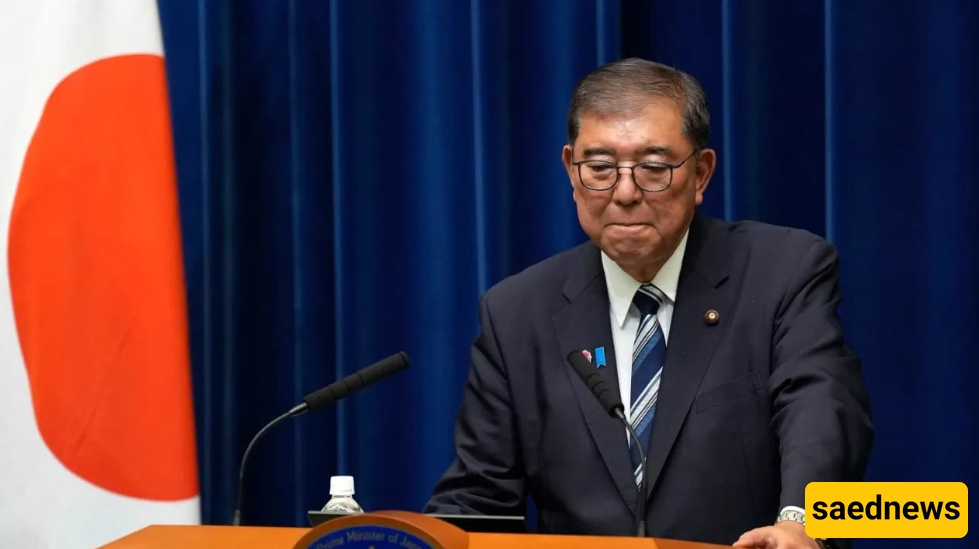SAEDNEWS: Japan’s Prime Minister Shigeru Ishiba has resigned after less than a year in office, following back-to-back election defeats that cost his party control of both houses of parliament. His departure leaves Japan facing political uncertainty amid economic and regional challenges.

According to Saed News; Japan is once again plunged into political turmoil after Prime Minister Shigeru Ishiba announced his resignation on Sunday, ending a tenure that lasted less than a year. The shock move came after his Liberal Democratic Party (LDP) suffered two devastating election defeats that stripped it of its dominance in parliament.
Ishiba’s departure marks one of the shortest premierships in Japan’s postwar history and raises pressing questions about the country’s political stability at a time of mounting economic pressures and regional insecurity.
The LDP, which has governed Japan for most of the past seven decades, had already been under strain. But under Ishiba’s leadership, the party lost its majority in the lower house for the first time in 15 years. Just months later, the July election dealt another blow when the LDP also lost its majority in the upper house.
For a party long seen as Japan’s political machine, these losses were nothing short of historic — and humiliating. Pressure quickly mounted on Ishiba to step aside before a looming leadership vote could force him out.
Until last week, Ishiba resisted calls to resign, arguing it was his responsibility to finalize negotiations with Washington over U.S. tariffs on Japanese exports. “I have strongly believed that negotiations concerning the U.S. tariff measures, which could be described as a national crisis, must be brought to a conclusion under our administration’s responsibility,” he said.
After reaching a deal to ease tariffs on Japanese cars and other goods, Ishiba told reporters he believed this was the “appropriate time” to step down.
Despite promises to address Japan’s cost-of-living crisis, Ishiba struggled to win public confidence. Inflation soared during his premiership, with rice prices doubling in the past year. For many households, rising costs overshadowed any progress on foreign policy.
Controversies further eroded Ishiba’s standing. Critics condemned his decision to appoint only two women to his cabinet, while allegations of handing out expensive gifts to party members fueled perceptions of favoritism and corruption.
At 68, Ishiba said he would remain in office until the LDP selects a successor, who will then be confirmed by parliament as prime minister. Several high-profile contenders are already being discussed within party ranks, sparking speculation about the future direction of Japan’s leadership.
For Japan, the world’s fourth-largest economy and a key U.S. ally, the resignation comes at a sensitive time. Rising tensions with China, questions about defense policy, and challenges in maintaining economic stability will weigh heavily on the next prime minister.
Ishiba entered office in October 2024 with a pledge to restore stability and address rising prices. Less than a year later, he leaves a political landscape even more fractured than before. While his defenders point to the successful conclusion of tariff negotiations with the U.S., his critics say his premiership will be remembered for electoral defeats, economic mismanagement, and unkept promises.
As the LDP moves quickly to install a new leader, Japan’s future remains uncertain — caught between a struggling economy at home and growing threats abroad.

